The week ahead in Parliament
- Published
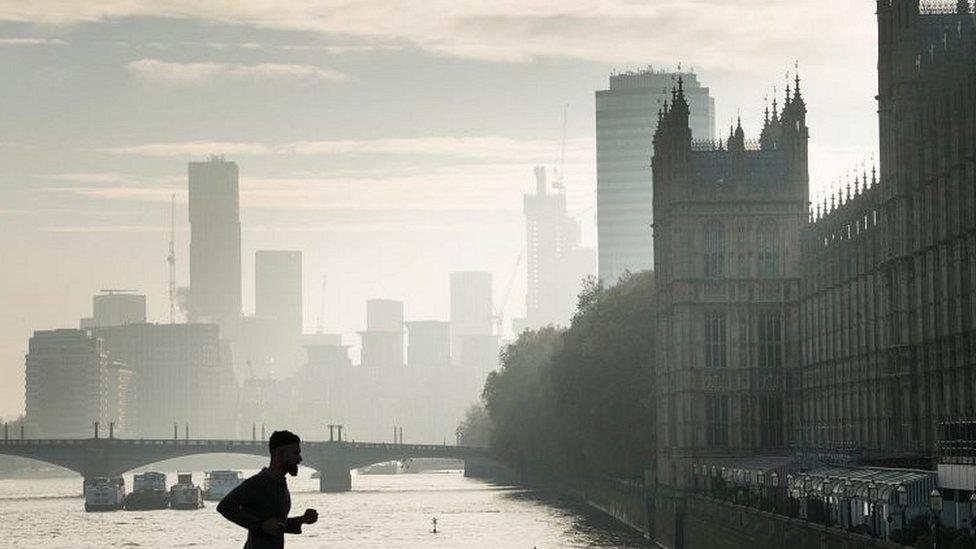
The lesson of the last few weeks is that there's the known agenda of Parliament and then there are the great events that actually dominate the week at Westminster.
There are at least four rolling crises which could muscle in: the pandemic, Brexit trade talks, the US presidential election and the accumulation of polling suggesting a majority of Scots now favour independence.
But that's not to say that the weekly grind of legislation and scrutiny, and the less conspicuous political sub-plots, don't matter.
Here are five points to watch for in the coming week:
The most striking thing about the three-hour debate on the latest coronavirus restrictions was the visible agony and intensity of the Conservative dissidents, and the sense that quite a number of backbenchers beyond those who voted against the regulations are now deeply unhappy. What's their next move?
How far will Their Lordships go? Peers are set to strike out the law breaking powers granted to ministers in the UK Internal Market Bill (UKIMB), in a vote on Monday. Such defeats in the upper house are not unusual - there have been 42 since the last election - but this time, the Lords may not be minded to perform their usual graceful climbdown in the face of the elected Commons. There's a view around that they should stick to their guns in the name of constitutional rectitude. So might the government have to deploy its parliamentary big gun, and use the cumbersome mechanism of the Parliament Act to override peers.
Not so keen: An interesting sub-plot in Monday's big vote on the UKIMB will be whether the former Advocate General for Scotland, Lord Keen of Elie, will join the rebels and vote to remove the law-breaking powers it contains, which prompted his resignation.
Restored glory: tucked behind medieval Westminster Hall is one of the hidden architectural glories of Parliament, the cloisters built in the reign of Henry VIII. They have been literally under wraps for some years because the stonework has been crumbling, but now the first section has been restored, to the delight of Mr Speaker Hoyle, not least because it was the site for the first Speaker's House, used by Henry Addington in 1794.
Everyone's a podcaster now: Lord Speaker Fowler is presenting a behind the scenes look at the workings of one of the least-understood parts of the parliamentary system, the House of Lords. Few outside SW1 understand it, and plenty within are startlingly vague - but as I detail below, Their Lordships make themselves felt at several points in the week ahead.
Monday 9 November
MPs open (14:30) with an hour of Home Office Questions. The slot after that is prime-time for post-weekend urgent questions and ministerial statements.
The main legislative action is the Second Reading of the Financial Services Bill, which aims to create a post-Brexit regulatory system.
In Westminster Hall, MPs debate two petitions. The first is on increasing the number of guests permitted at weddings during pandemic restrictions - the petition which attracted 109,000 signatures says limits should depend on the size of the venue.
The second petition, which has more than 145,000 signatures, calls for funding for nightclubs, dance music events and festivals as part of the £1.57bn pandemic support package announced by the government for the arts and culture.
On the Committee Corridor, Public Accounts (14:00) hears evidence on improving broadband from officials from the Department for Digital, Culture, Media and Sport.
In the Lords, the theme of the day, one way and another, is UKIMB. It starts with the introduction (13:00) of Keith Stewart QC as a peer. He has been appointed Lord Advocate for Scotland, replacing Lord Keen of Elie, who resigned over UKIMB.
Ministers face questions on the chair, timeframe, and terms of reference, for the Royal Commission on criminal justice, the US presidential election, aligning the skills strategy with the target for net-zero carbon emissions, and support for freelancers in the entertainment and music industries.
Peers warm up for the day's main event with consideration of Commons amendments to the Immigration and Social Security Co-ordination (EU Withdrawal) Bill - which they may well bounce back to the Commons with another iteration of the "Dubbs amendment" on the rights of child migrants.
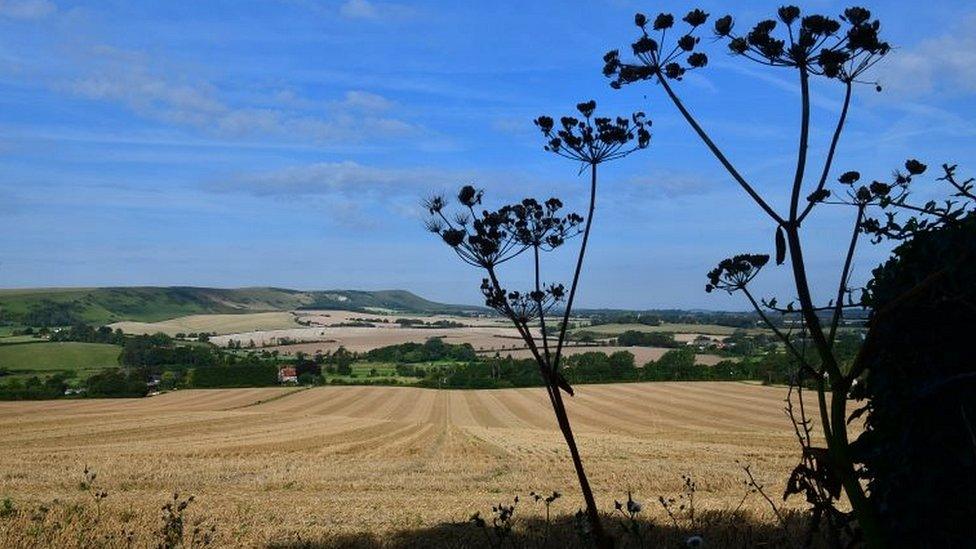
The Agriculture Bill returns to the Lords
Similarly, they may keep pushing on some of their rejected amendments to the Agriculture Bill - and perhaps send it back to the Commons again, despite a significant government concession, which will set up the Trade and Agriculture Commission on a permanent footing.
As peers wanted, it will produce a report to Parliament on the impact on animal welfare and agriculture of each free-trade deal the government signs after the end of the EU transition period on January.
Then, peers move onto the fifth committee day on UKIMB. Normally these proceedings are a fairly low-key exploration of the detail of a bill; but in this case there's a strong current of opinion which says that peers should strike down the controversial powers to break international law which are the central feature of UKIMB.
Votes at Committee Stage are unusual, but not unheard of - and the Regret Motion, passed against the bill by a thumping majority of 226 at Second Reading on 20 October, probably foreshadows a major defeat for the government here.
And there will be more action around this bill, when Report Stage consideration begins on 18 November.
Tuesday 10 November
MPs open (11:30) with Business, Energy and Industrial Strategy Questions.
The day's Ten Minute Rule Bill, from Plaid Cymru's Hywel Williams, aims to establish a system of licensing for drivers of jet skis and create an offence of driving a jet ski without a licence.
The main lawmaking action is the consideration of Lords amendments to the Parliamentary Constituencies Bill - the government was defeated five times on the bill in the Lords on encouraging 16-to-17-year-olds to register, on the permitted variation in the number of voters per seat, on who appoints Boundary Commissioners (peers want the Lord Chief Justice to take over) and on the interval between revisions of constituency boundaries.
In Westminster Hall (09:30) the DUP's Jim Shannon leads a debate on obesity and Covid-19, and Labour's Yvonne Forvargue has a debate (16:00) on protecting people from online scams.
It's a high-powered day on the Committee Corridor, as the Public Administration and Constitutional Affairs Committee (09:30) continues its deep dive into the role and status of the Prime Minister's Office with evidence from a series of former denizens of Downing St, including Tony Blair's former chief of staff, Jonathan Powell and Sir John Redwood, who was Margaret Thatcher's policy chief.
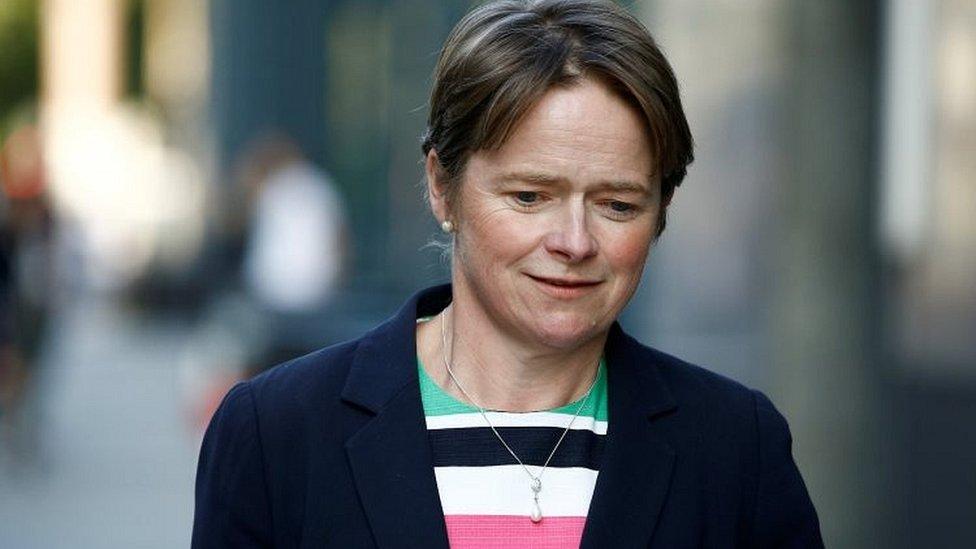
Baroness Harding will talk about lessons learned from the Covid-19 pandemic
Health and Social Care (10:30) hears from the chair of the government's track and trace programme, Baroness Harding, as part of its inquiry into lessons learned from the pandemic.
Defence (14:30) hears expert evidence on the government's Integrated Review of UK foreign policy and national security.
The FA, Premier League and EFL chairs are before Digital, Culture, Media and Sport, while the new permanent secretary at the Foreign Office and Head of the Diplomatic Service, Sir Philip Barton, makes his debut appearance at the Foreign Affairs Committee (14:30).
Lord Chief Justice of England and Wales Lord Burnett is before the Justice Committee (14:00) talking about court capacity and the backlog of jury trials
In the Lords (12:00) ministers face questions on the UN Days of Activism Against Gender-Based Violence campaign, dental services during the pandemic, and the revised Waste Prevention Programme for England.
After that, peers yomp through another set of orders and regulations. There is also the tantalising prospect that further business may be scheduled
A Lords committee to keep an eye on is the Common Frameworks Scrutiny Committee (10:30) looking at post-Brexit common frameworks. This is a key issue about the running of the UK internal market, post-Brexit, and mainlines into concerns about the devolution implications of UKIMB. Witnesses include Michael Russell, Scotland's Government Secretary for Constitution, Europe and External Affairs, and Jeremy Miles, the Welsh Government Minister for European Transition.
Wednesday 11 November
The Commons day begins with half an hour of Scotland Questions, followed (12:00) by Prime Minister's Question Time.
The day's Ten Minute Rule Bill, from Labour's Kerry McCarthy, would allow local councils to regulate supported housing schemes, where housing, support and sometimes care services are provided. It would also ban placing of children in care in unregulated accommodation.
The main events are general debates on remembrance, UK armed forces and society, followed by a general debate on Covid-19.
In Westminster Hall (09:30) South Yorkshire Metro Mayor Dan Jarvis leads a debate on support for the economy of the North of England. He will be pressing for a redistribution of infrastructure and other public spending towards the North, in the forthcoming spending review. Mr Jarvis is the only metro mayor who remains an MP.
And there's a debate on family visits to health and social care settings (14:30) led by Conservative Joy Morrissey.
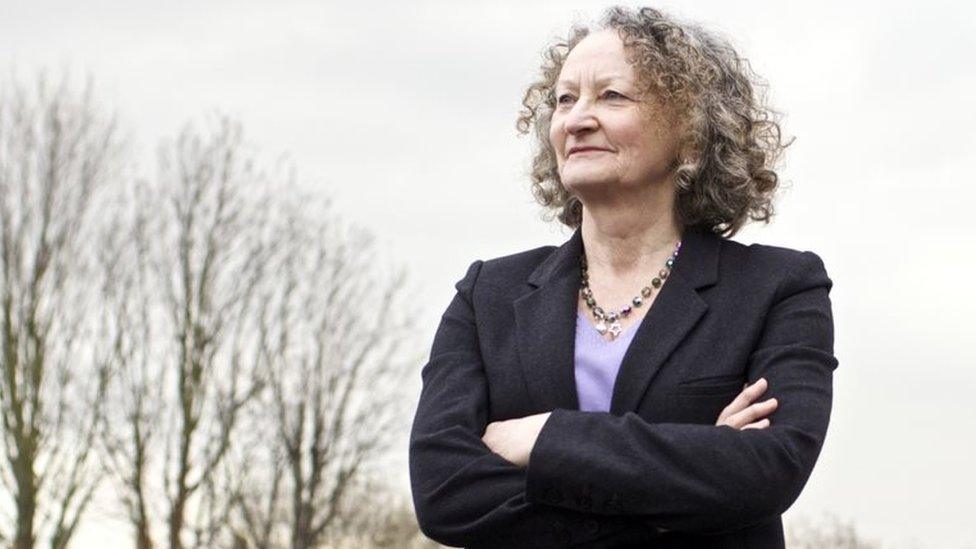
Baroness Jones is likely to speak of her own experiences of being under police surveillance
The day's committee action includes Home Affairs (09:30) continuing its hearings on illegal channel crossings, and Transport (09:30) looking at trains for the future.
The Women and Equalities Committee (14:30) has a pre-appointment hearing with Baroness Falkner for chair of the Equality and Human Rights Commission.
In the Lords (12:00) questions to ministers range over rural bus services, whether the pandemic will hit foreign aid spending, and long-term funding plans to address domestic abuse.
Then comes the Second Reading of the controversial Covert Human Intelligence Sources (Criminal Conduct) Bill - the measure which provides a legal framework under which undercover police and intelligence agents can by authorised to commit criminal acts.
Keep an eye on the Green Party's Baroness Jones of Moulsecoomb, who discovered she was labelled a potential "domestic extremist" and was under police surveillance, including during her run for mayor of London. Other speakers include former Lord Chief Justice, Lord Judge, and former independent reviewer of terrorism legislation, Lord Carlile.
The debate provides an early dispatch box debut for new Advocate General Keith Stewart, who is leading for the government alongside the Lords Minister, Baroness Williams of Trafford.
Thursday 12 November
The Commons opens (09:30) with questions to the Chancellor of the Duchy of Lancaster and Minister for the Cabinet Office (AKA Michael Gove).
That is followed by the weekly Commons Business Statement.
The main debates, chosen by the Backbench Business Committee, are on the effect of the pandemic on refugee communities, and on achieving the ambition for a smoke-free England by 2030.
In Westminster Hall (13:30) there are two pandemic-related debates, first on the impact on breast cancer diagnosis, and then (15:00) on the effect on people with dementia.
On the Committee Corridor, Public Accounts (10:00) quizzes the permanent secretary at the Treasury, Sir Tom Scholar, on support for jobs during the pandemic.
Environmental Audit (09:30) takes evidence in its Biodiversity and Ecosystems inquiry, and Communities and Local Government has a session with council leaders on finance (15:00).
In the Lords proceedings open (12:00) with the introduction of former Conservative Party Treasurer Michael Spencer as Lord Spencer of Alresford.
Questions to ministers range across what government policies on the pandemic mean for the levelling-up agenda in England, the Foreign Office strategy to meet the Sustainable Development Goals and keeping the £20-a-week increase in Universal Credit after the pandemic.
Then peers consider Commons amendments to the Fisheries Bill, which include the removal of the sustainability objective added by peers in a defeat for the government in June.
Friday 13 November
MPs have voted to reschedule the Private Members' Bills sitting due today - it will now take place on 15 January.
- Published10 October 2020
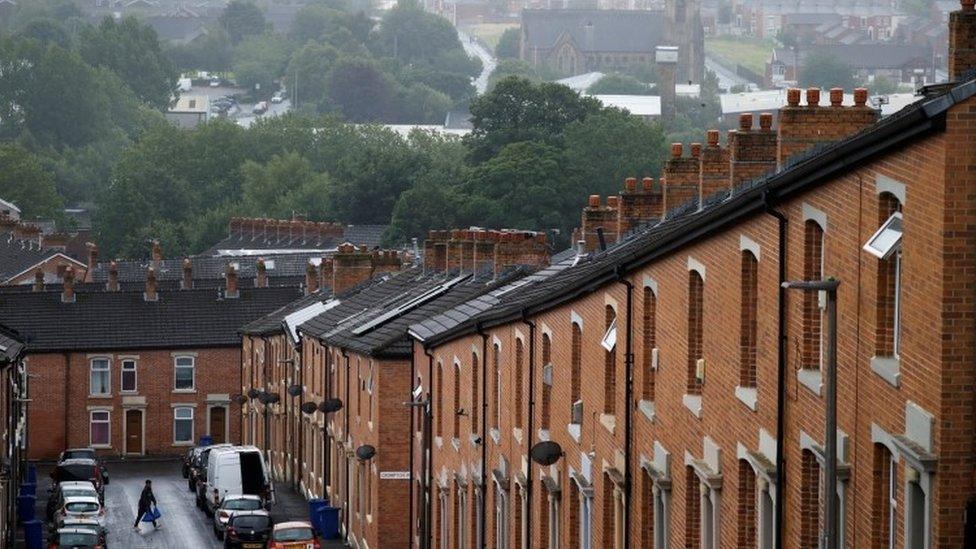
- Published19 October 2020
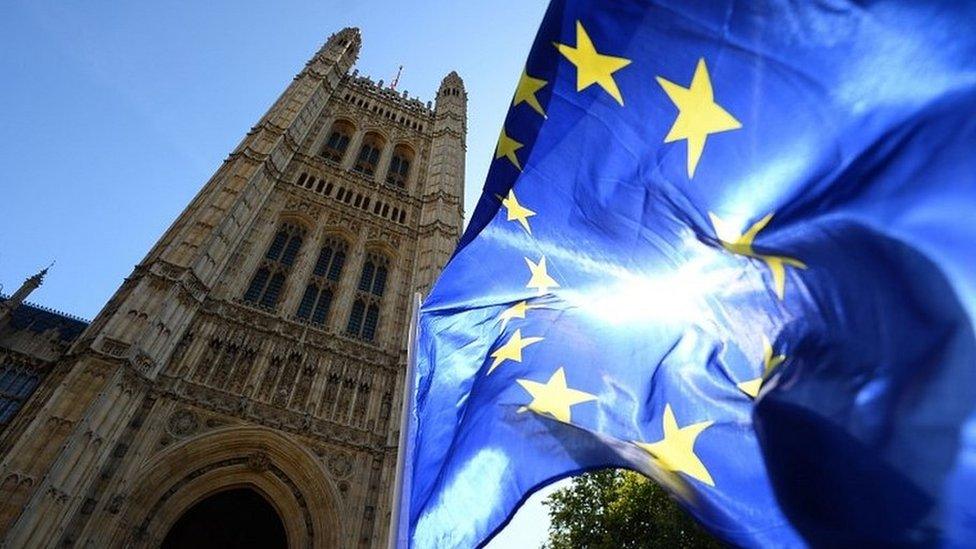
- Published26 January 2022

